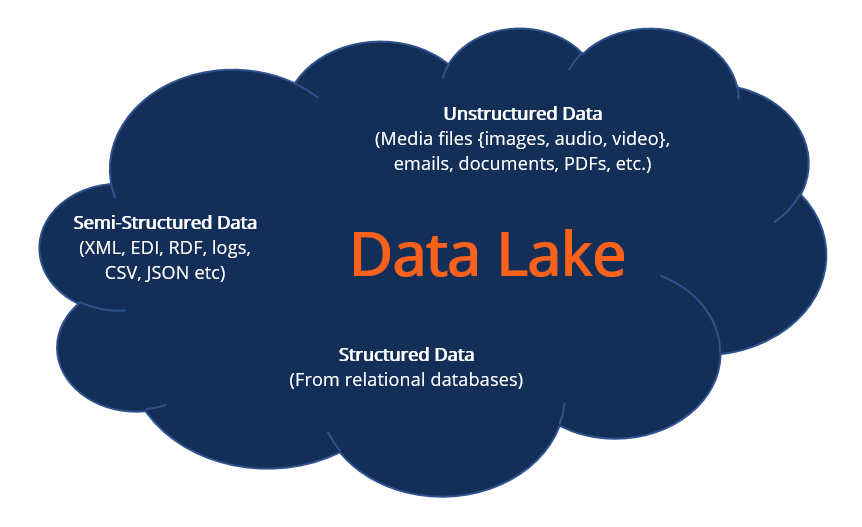A data lake is a centralized repository that allows businesses to store all their raw, unstructured, semi-structured, and structured data at any scale. It is a new approach to data storage that offers organizations the ability to store large volumes of data, from different sources, in their original format. This allows businesses to access and analyze all of their data in one place, providing them with the ability to make data-driven decisions and gain insights that can drive growth and innovation.

The idea behind data lakes is to create a single source of truth for all data, which can be accessed by different departments, business units, or even third-party vendors. Unlike traditional data warehouses, which require data to be pre-processed and structured before it is stored, data lakes can store data in its raw form. This makes it easier for businesses to store and analyze data from different sources, including social media, customer feedback, and sensor data from IoT devices.
One of the key benefits of data lakes is that they allow businesses to store data without any limitations on volume or type. This makes it possible for businesses to store vast amounts of data, which can be used to generate insights that were previously impossible to obtain. The ability to store all types of data in one place allows businesses to connect data sets that were previously siloed, enabling them to identify patterns and trends that were previously hidden.
Another benefit of data lakes is that they can be used for a variety of different purposes, including data exploration, data mining, and machine learning. Data exploration involves searching for patterns and trends in data, while data mining involves using algorithms to identify relationships between data points. Machine learning involves training algorithms to make predictions or recommendations based on data sets. By using data lakes for these purposes, businesses can gain insights that can help them make informed decisions about their operations, products, and services.
Data lakes are designed to be highly scalable and flexible, allowing businesses to store data in a variety of formats, including text, images, video, and audio. This flexibility enables businesses to analyze all types of data, including data that was previously difficult to analyze.
In addition to their flexibility and scalability, data lakes also offer businesses the ability to leverage cloud-based storage, which can significantly reduce the cost of data storage. Cloud-based data lakes allow businesses to store data on remote servers, eliminating the need for expensive hardware and software.
Another benefit of data lakes is that they enable businesses to perform real-time analysis of data, allowing them to respond to changing market conditions or customer needs quickly. Real-time analysis can help businesses make informed decisions about marketing, product development, and customer service, leading to better outcomes and increased profitability.
However, data lakes are not without their challenges. One of the main challenges is data quality. Because data lakes store data in its raw form, there is a risk of storing poor quality data, which can lead to inaccurate insights and poor decision-making. Additionally, data governance is also a challenge, as businesses need to ensure that data is stored securely and that access to data is restricted to only those who need it.
In conclusion, data lakes offer businesses the ability to store large volumes of data from different sources in their original format. This allows businesses to connect data sets that were previously siloed, enabling them to identify patterns and trends that were previously hidden. However, businesses need to be aware of the challenges associated with data lakes, including data quality and governance. By overcoming these challenges, businesses can gain insights that can help them make informed decisions about their operations, products, and services, driving growth and innovation in their industries.

